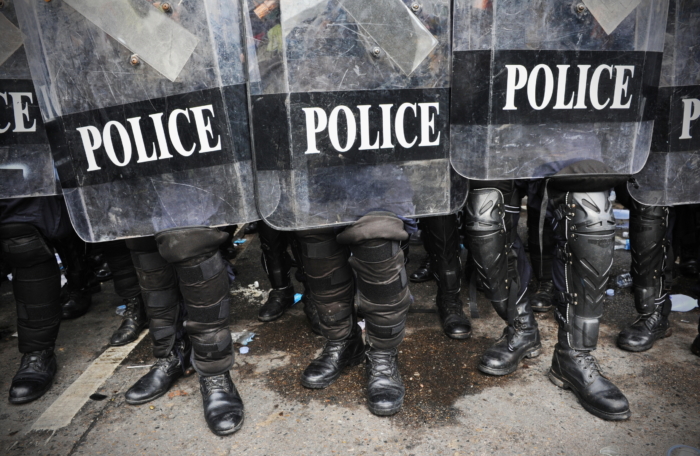Law enforcement accountability commission calls for more study, punts on some big reforms
After 45 days of study, the governor’s Commission on Law Enforcement Accountability, Community and Transparency on Friday recommended that New Hampshire spend a lot more time studying police practices and accountability.
The anti-climactic report did contain some immediate action items, including:
- Increase the N.H. Police Standards Training Council staff
- Abolish the part-time police academy;
- Create memoranda of understanding between school districts and law enforcement agencies that would guide the behavior of school resource officers;
- Standardize the state’s required annual police training;
- Double the minimum hours of annual training and including issues such as bias and diversity and use of force training;
- Increase scenario-based training;
- Provide the Ethical Policing is Courageous (EPIC) and Active Bystandership Law Enforcement (ABLE) training developed by the New Orleans Police Department;
- Adopt uniform training for SWAT teams that includes mental health and de-escalation training;
- Adopt nationally accepted standards for school resource officer training.
However, the report stopped short of recommending broader reforms such as repealing laws that grant police immunity from civil lawsuits, barring union contracts from including procedural protections not afforded average citizens accused of crimes, making police discipline files public, and mandating the use of body cameras.
It’s surprising and disappointing that such relatively obvious and uncomplicated fixes, some of which we recommended in our police reform proposal this month, were left out.
The commission recommended further study of six issues, including the collection of non-biased data during police interactions, the use of qualified immunity, the use of choke holds, and the provision of mental health service responders instead of law enforcement for 911 calls.
To pursue the ongoing study of these important issues, it’s critical that the state lean heavily on community members who do not have law enforcement backgrounds. There’s a real risk that study committees peopled largely with law enforcement professionals would lack the outside perspective necessary to conduct impartial and unbiased reviews. Law enforcement input is essential, but it should not dominate the process.
The published record of the commission’s work reveals that members affiliated with law enforcement offered informed and insightful proposals for improving training and standards. Without their input, these positive reforms might have been overlooked. Yet many of the more aggressive proposals for achieving large gains in accountability were made by members not affiliated with law enforcement. Unfortunately, a lot of those proposals were not included in the commission’s final report. That leaves a large opening for lawmakers in next year’s session and for local governments starting this summer.



